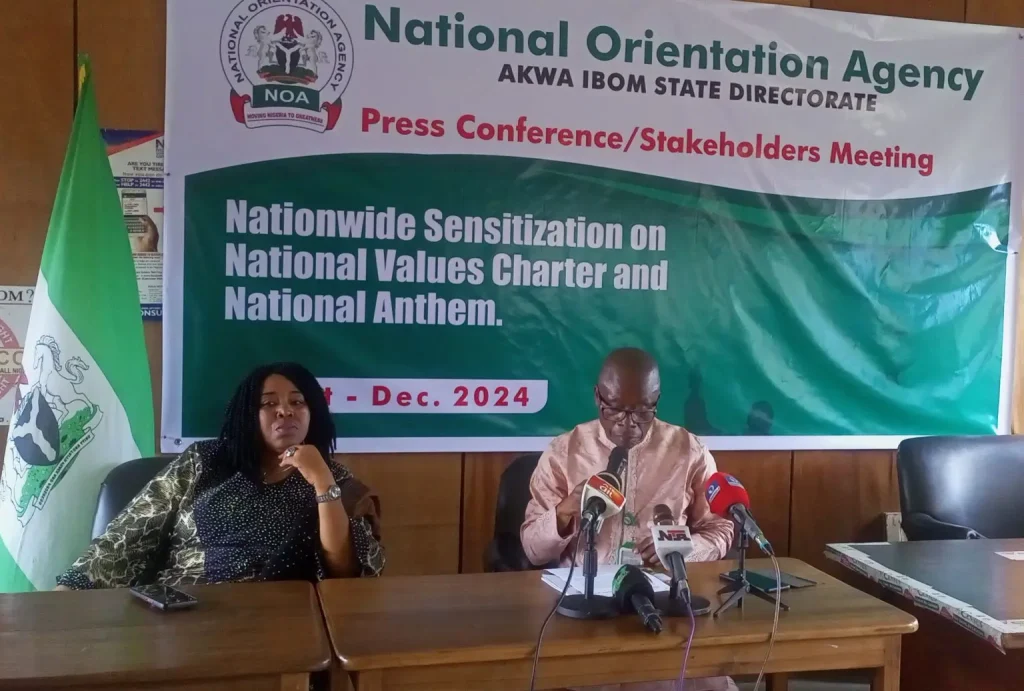CurrentReport Blog The Federal Executive Council (FEC) has officially approved the mandatory inclusion of the National Values Charter as part of the curriculum for both basic and post-basic schools in Nigeria. This significant move is aimed at fostering civic education and raising a generation of value-driven citizens.
In addition, the National Values Charter will also be a mandatory component of the pre-resumption retreats for members of the FEC, the National Assembly, the judiciary, and other government appointees. This initiative is expected to promote value reorientation and strengthen national development efforts.
The Director-General of the National Orientation Agency (NOA), Mallam Lanre Issa-Onilu, made this announcement during a Nationwide Sensitization on National Values Charter and the National Anthem held in Uyo, Akwa Ibom State. Represented by Tessy Nnalue, Director of Orientation and Behavioral Modification at NOA, Issa-Onilu emphasized that the new curriculum will include key topics designed to develop model citizens and instill a strong sense of national values in young Nigerians.
The initiative, according to Issa-Onilu, is intended to promote civil education, engage stakeholders, and foster partnerships that will contribute to national development. He highlighted that the National Values Charter will not only impact students but also government officials through pre-resumption retreats.
At the event, Akwa Ibom State Director of NOA, Mkpoutom Mkpoutom, underscored the importance of restoring the dignity and proper use of national symbols. As part of the FEC’s decision, it was approved that the first stanza of the National Anthem should be recited at all official functions, while the full three stanzas will be reserved for special occasions such as Independence Day, Democracy Day, and Children’s Day. Additionally, the third stanza of the National Anthem will now serve as the National Prayer.
Mkpoutom also announced the renaming of the War Against Indiscipline (WAI) brigade to the Citizens Value Brigade, reflecting a shift toward promoting discipline through civic engagement rather than enforcement.
This comprehensive approach by the FEC is expected to instill a sense of patriotism, civic responsibility, and national pride among Nigerians, beginning from the grassroots level in schools.












